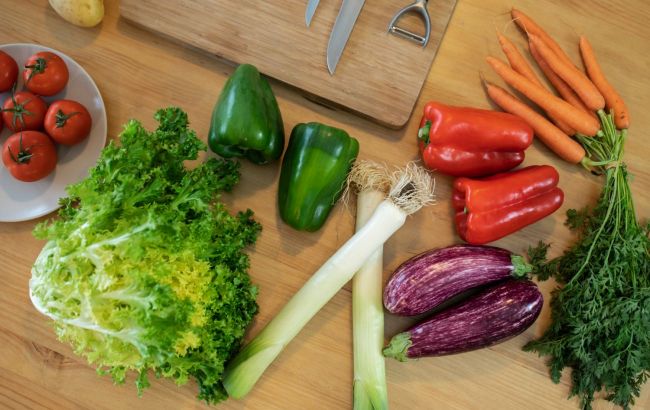Here's what happens to your body if you stop eating vegetables
 What happens if we don't eat vegetables (photo: Freepik)
What happens if we don't eat vegetables (photo: Freepik)
Vegetables are a key source of vitamins, fiber, and antioxidants that are essential for health. But what happens if you give them up entirely? Deficiencies in important nutrients can lead to serious health problems.
What happens if you don't eat vegetables
Digestive problems
According to nutritionist Olena Kostiuk, without fiber, the intestines begin to work worse, which leads to constipation, bloating, and the accumulation of toxins.
Deterioration of skin
Vegetables are a storehouse of antioxidants. Without them, the skin can become dry, dull, and more acne and wrinkles can appear.
Constant fatigue and weakness
Trace elements such as magnesium and potassium maintain energy levels. If there is a lack of them, you will experience constant weakness and loss of energy.
It is important to understand that taking vitamins is not a panacea. Natural vitamins from food are absorbed better.
“You don't need to eat kilograms of vegetables! Just 300-400 grams a day is enough, and your body will say thank you,” the expert added.
What vegetables should be in your diet?
To maintain health, the diet should include vegetables that provide the body with essential vitamins, minerals, and fiber. Here are the most important ones:
- leafy greens (spinach, kale, arugula, lettuce) - rich in vitamins A, C, K, folic acid, and antioxidants. Supports heart function, improves digestion, and strengthens the immune system
- broccoli - contains a lot of fiber, vitamins C, K, and folic acid. Known for its anti-inflammatory properties and benefits for the cardiovascular system
- carrots - a source of beta-carotene (provitamin A), which supports vision, skin, and the immune system
- bell pepper - one of the best sources of vitamin C, which is important for immunity, skin health, and iron absorption
- tomatoes - contain lycopene, which is a powerful antioxidant that reduces the risk of heart disease and certain types of cancer
- cauliflower - rich in fiber, vitamins C and K, as well as compounds that help detoxify the body
- beets - help improve blood circulation, support liver health, and help lower blood pressure
- garlic and onions - have anti-inflammatory and antimicrobial properties, help strengthen the immune system, and reduce the risk of cardiovascular disease
- pumpkin - rich in beta-carotene, which supports eye, skin, and immune health
- cucumbers - contain a lot of water, help to moisturize the body, and aid in digestion
Including these vegetables in your daily diet will help maintain health, energy, and well-being.
Sources: nutritionist Olena Kostiuk's Instagram page and Medical News Today.
This material is for informational purposes only and should not be used for medical diagnosis or self-treatment. Our goal is to provide readers with accurate information about symptoms, causes, and methods of detecting diseases. RBС-Ukraine is not responsible for any diagnoses that readers may make based on materials from the resource. We do not recommend self-treatment and advise consulting a doctor in case of any health concerns.

